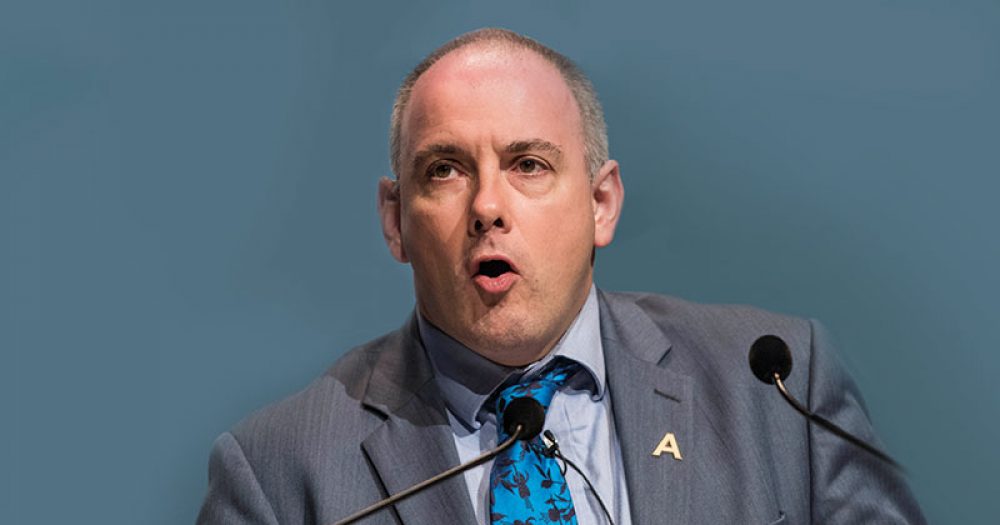The government has today published its response to the education select committee’s report, The apprenticeships ladder of opportunity: quality not quantity”, published in October.
Here are seven of the key findings from the response:
Discounted transport for apprentices won’t arrive anytime soon
Last year the Conservative party’s general election manifesto promised to introduce “significantly discounted bus and train travel for apprentices”.
But a year and a half later there’s still no sign of it – and the government’s response today revealed it’s likely to be 2020 at the earliest before apprentices can enjoy discounted travel.
“We recognise that more can be done to remove the barriers to young people taking up apprenticeship opportunities, but further discounts will require additional funding,” it said.
Both the Department for Education and the Department for Transport would “work together to support discounted travel for apprentices” but “given the additional cost to the taxpayer, the focus of this work will now turn to preparing proposals for consideration at the forthcoming spending review”.
The response got short shrift from committee chair Robert Halfon (pictured above).
“The government continues to drag its feet on how it will reduce the cost of transport and it must now act on its manifesto commitment and deliver on the promise of significantly discounted bus and train fares,” he said.
Nor will a UCAS-style portal for technical education
The Conservatives also promised a “UCAS-style portal for technical education” in last year’s manifesto – and likewise this is unlikely to be introduced soon.
The government’s response said it carried out “extensive research” with over 2,000 young people, colleges and careers advisers about introducing such a portal.
“While the research indicated that young people would value a central source of information as they make decisions about their next steps, it did not show that they found the current application process challenging.”
“As a result, we are focussing first on ensuring young people have the right information on all their options, including on technical education and apprenticeships,” the government’s response said.
It will “keep under review” the need for a “centralised 16-plus application portal in the future as part of our work to simplify 16-plus courses and qualifications”.
But the government’s expectations on subcontracting WILL be published soon
The education committee report urged the government to set a cap on management fees charged by prime contractors, and to tighten its requirements on providers that subcontract their provision.
In its response, the government said it was “about to undertake further work to develop our expectations around the operation of subcontracting relationships between providers” and it planned to “publish our final expectations by the end of December 2018”.
“Our key priorities will be to develop an approach which increases the amount of funding that reaches front line delivery and increases transparency by ensuring that providers explain in detail the make-up of any fees or charges,” it said.
The response followed disappointment in August when hopes for a cap on management fees were kicked into the long grass.
Anne Milton didn’t mean that large providers are “less risky”
The education committee’s report said that it “cannot agree” with the skills minister that “large providers are less risky” – particularly following the Learndirect debacle – “although dealing with them rather than a number of smaller providers may lighten the ESFA’s workload”.
But, according to the government’s response, that wasn’t what she meant at all.
“The minister, Anne Milton, would like to clarify that she was not implying that ‘larger providers are less risky’ during her oral evidence session to the Committee,” it said.
Instead she “stated that specifically in the context of a procurement, smaller providers can become ‘a bit more risky’” – but that “it is not the case that small providers are considered risky”.
Six-monthly updates from the Institute for Apprenticeships’ apprentice panel will now be published
The report recommended that the role of the Institute for Apprenticeships’ apprentice panel “be formalised” and that its “recommendations to the institute’s board and the board’s response should be published”.
This recommendation was put to the apprentice panel, who “agreed that it would be more beneficial to produce a six-monthly report on their progress that is apprentice-led and owned by them”.
This report will be published “on the Institute’s website, along with the minutes from board meetings they participate in”.
Good apprentice employers could soon have a kitemark
“It is right that those employers who deliver a good experience for their apprentices are recognised for this and can promote it,” the government’s response said in response to a recommendation that it support efforts to develop a good apprentice employer kitemark.
Work to develop such a kitemark “indicating a signal of quality for apprentice employers” is ongoing, the response said.
“Using existing quality measures and working with stakeholders, criteria will be developed and, if met, employers will be able to showcase the kitemark,” it said.
“This will provide quality assurance to apprentices whilst encouraging good practice amongst employers.”
Ministers are set to test ways to ensure compliance with the Baker clause
The Baker clause has so far proved contentious since it came into force at the beginning of the year, and in August FE Week reported that the DfE was gearing up for direct intervention.
Four months later and it’s not clear if it has yet.
“A recent ministerial roundtable considered the barriers to compliance and agreed to test new ways of applying the legislation, including writing directly to parents with details of the local offer and holding careers fairs,” it said.
But in “cases of serious non-compliance” the DfE was “prepared to intervene”, it said.
“This could include an official or minister from the department writing to the school and, ultimately, the legal powers of intervention available to the Secretary of State may be enforced.”






I work on the Apprenticeship team in HMRC on Communications and Engagement. One of the things I am producing is a document with discount information for our apprentices but not just around travel as it includes things like NUS etc.
I was very surprised to see the information above stating that discounted travel won’t arrive soon as I was advised that there would shortly be a Conservative manifesto agreed to enable apprentices to have discounted travel.
Carole